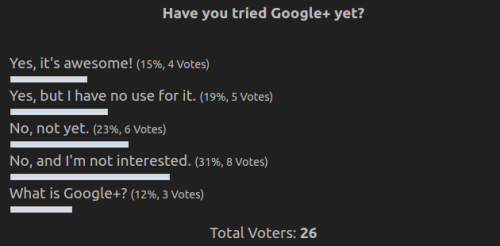I’ve recently started advocating for flexible working hours in all the offices I can get my foot into. With our recent power cuts there was an extra possibility for a few companies to try remote working and more flexible schedules. It went very well with some, and so well with others. The lack of self-discipline is often mentioned as a primary roadblock to such flexibility. I used to agree with that. But now I don’t. I think that internal company communication tools and channels have a much larger impact on whether flexible schedules and remote work will work or not.
Why am I suddenly speaking about flexible hours? Because I came across this blog post by Zach Holman, one of a few GitHub employees.
By allowing for a more flexible work schedule, you create an atmosphere where employees can be excited about their work. Ultimately it should lead to more hours of work, with those hours being even more productive. Working weekends blur into working nights into working weekdays, since none of the work feels like work.
Read the whole thing, it’s not that long and it is well written.
